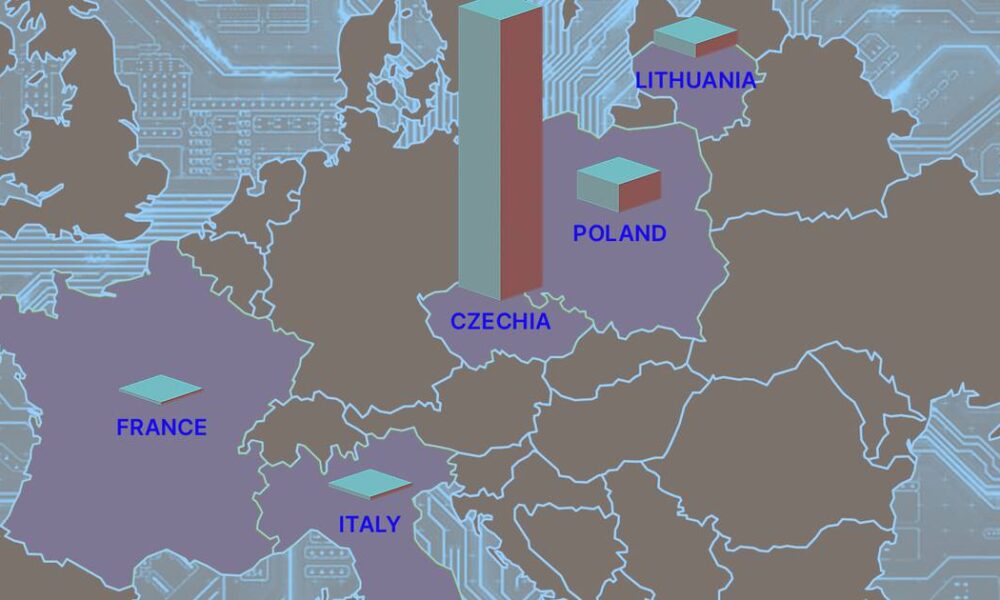Regulation
European Countries Roll Out Crypto Laws in Race for MiCA – DL News

- European Union member states are developing new laws to make it easier for the bloc to regulate crypto.
- Lithuania plans to tighten crypto regulations while Poland gives businesses more time.
- The Czech Republic has the highest number of registered crypto entities among EU countries.
The European Union’s crypto sector is in the midst of an overhaul.
Countries in the 27-nation bloc are preparing for the new Crypto Asset Markets Regulation, or MiCA, which will forever change the rules of the sector.
In February, Poland became the latest country to introduce laws to launch a new regime for the 1,187 companies registered there.
The transition begins
The overhaul marks the start of its transition to comply with the bloc’s new rules for virtual asset service providers, or VASPs, by the end of 2024.
“This law provides all the necessary details for MiCA to operate in Poland and for crypto asset service providers to comply with it,” said Jarosław Nowacki, partner and founder of law firm tau.legal. DL News.
The Czech Republic, Poland and Lithuania have the highest number of crypto companies registered with local financial authorities, according to data collected by DL News.
Cheap, quick and easy registrations have enabled many, many businesses to open their doors, even if some do not have a physical presence in these countries.
However, MiCA could end the party as the landmark regulation sets stricter standards for companies offering crypto products.
Join the community to receive our latest stories and updates
On the positive side, this will also allow companies to access the entire EU market with a license issued by a single member state.
Czech VASPs
The Czech Republic tops the ranking with 9,372 people and businesses registered, according to figures last updated in May 2023.
Czech authorities did not respond DL News’ repeated requests for updated data. There is no online registration.
The Czech Republic and Poland allow individuals to register as a VASP.
“They have a lot of work to do given that their current anti-money laundering regime is rather light.”
— Neil Samtani, CEO of VASPnet
While Poland is progressing towards implementing MiCA, the Czech Republic’s roadmap is less extensive.
“The Czech Republic has a lot of work ahead of it with a large number of existing registrants to deal with and little reporting so far on progress on MiCA,” said Neil Samtani, CEO of VASPnet, a company that analyzes data on VASPs. DL News.
Capital requirements
Lithuania comes in third place with 569 registered entities.
“Unlike Poland or the Czech Republic, registrants are mostly companies and not individuals, and this is probably due to the minimum share capital requirements of 125,000 euros,” Samtani said.
Lithuania announced it would strengthen the country’s crypto laws in December, when authorities released draft laws that would surpass MiCA.
“They have a lot of work to do given their current situation. [anti-money laundering] The scheme is rather light and only involves a notification process,” Samtani said.
Price tag
One of the ways these countries have managed to attract more crypto entities to register is by offering cheap and efficient registration.
In the Czech Republic, it costs around €40 to notify the regulator, unlike in Italy, where companies can expect to pay €8,300 for registration.
In Poland, the new bill suggests it will cost a crypto company a minimum of €4,500 to obtain a license under MiCA, Nowacki said.
Currently, it only takes two weeks and less than €150 in fees to register as a VASP in Poland.
New diets
France is one of the top five countries in the European Union in terms of development of the cryptocurrency market. There are 103 registered VASPs identified in France.
The country also leads the EU in implementing MiCA. In July, the country introduced a MiCA-style regime for new market entrants.
However, there is still a long way to go before industry gets involved, and time is running out.
Société Générale’s digital assets arm, SG Forge, is the only company in France authorized under the country’s stricter MiCA-style regime.
In Italy, 129 entities are registered.
“Italy is currently carrying out open consultations on the implementation of MiCA, which indicates that it has done the lion’s share of the work, and it is likely that we will not see many changes in the proposed regime” , said Samtani.
Transition phase
Under MiCA, European countries can choose to extend by up to 18 months the time frame within which already registered companies must comply with the new laws.
However, the European Securities and Markets Authority, which oversees part of the implementation of MiCA, has warned that it should not wait more than 12 months.
Lithuania has decided to remove the transition period and bring the MiCA laws into force on December 30. And Italy recently announced a 10-month transition.
Poland will give registered companies an extra year, Nowacki said.
“After the end of 2025, this current registry will cease to exist,” he told DL News. “Prior to this, businesses could operate based on the registration currently obtained.”
But Poland’s registry could shrink before the 2025 deadline, Nowacki said.
If a VASP does not submit a quarterly data report to the Polish Financial Intelligence Unit, or if a company does not respond to an audit request from regulators, it may be removed from the CASP register.
Inbar Preiss is DL News’ Correspondent in Brussels. Contact the author at inbar@dlnews.com. Ana Ćurić is a data journalist. Contact her at ana@dlnews.com.
